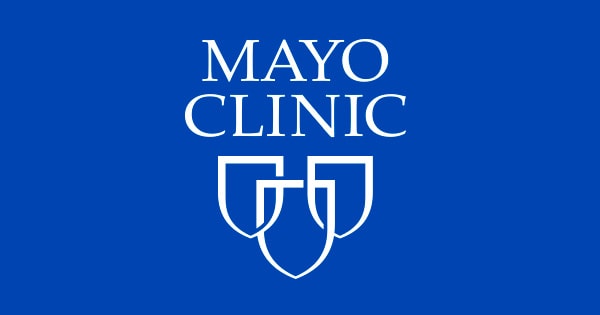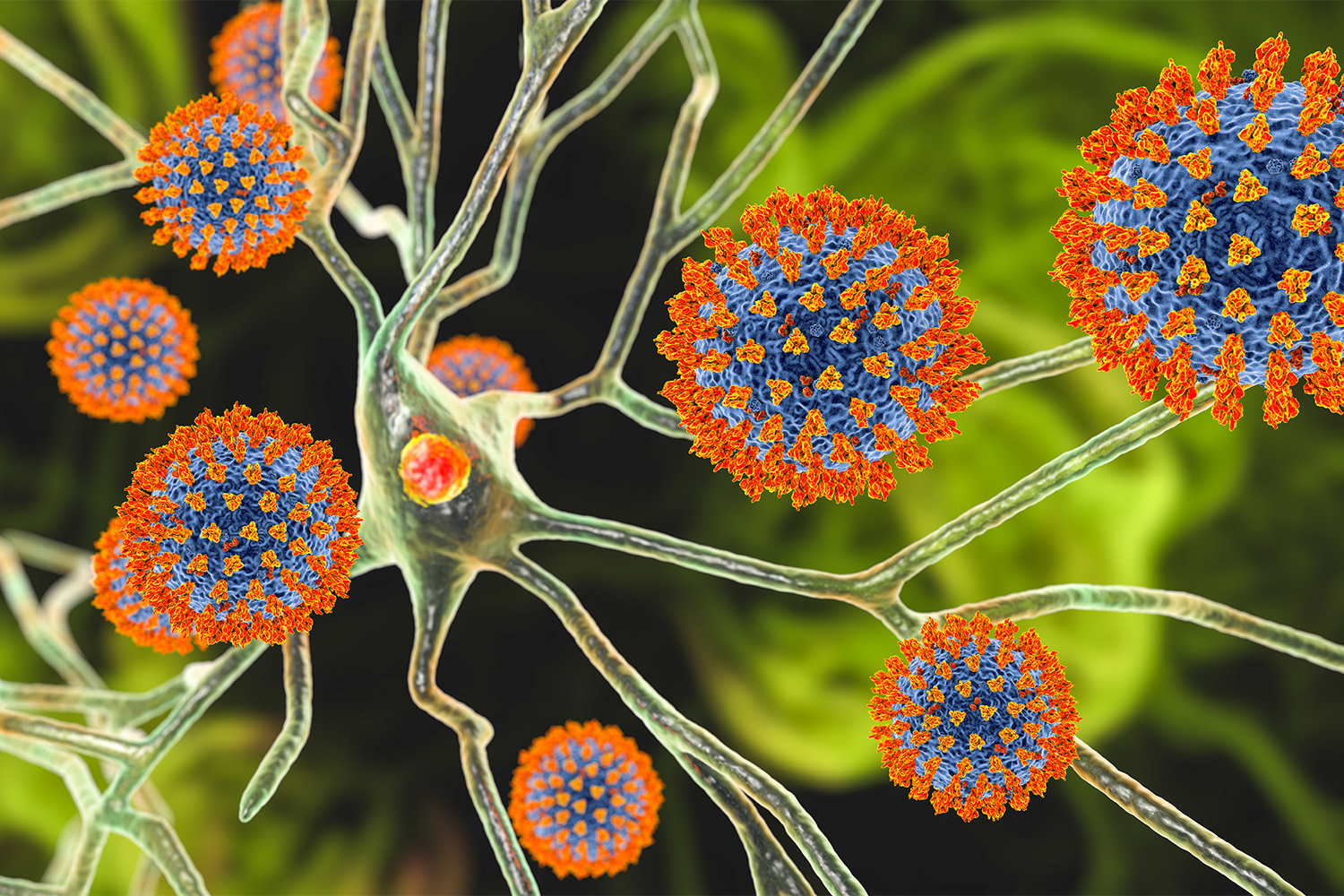Until you step and dog beep and you are walking around the grocery whistling and smiling.The only two long hauler symptoms I am having are some issues with sense of smell. Which isn't bad because I still cannot smell bad odors, only pleasant ones.
And the other is occasional light headedness.
Navigation
Install the app
How to install the app on iOS
Follow along with the video below to see how to install our site as a web app on your home screen.
Note: This feature may not be available in some browsers.
More options
You are using an out of date browser. It may not display this or other websites correctly.
You should upgrade or use an alternative browser.
You should upgrade or use an alternative browser.
For those of us with any long-covid issues, also know as covid long haulers. (16 Viewers)
- Thread starterSaintInBucLand
- Start date
- Latest activity Latest activity:
Complex Kid
Most things I worry about Never happen anyway
Offline
The funny think about smell. I still have some smell issues but I dont mind them, I can no longer smell bad smells. So people who dont bathe, rotten anything or crop dusting has no impact on me.
It's been over a year and my smell still isn't' totally back to normal. Coffee and feces smell the same but it's not like either of them smelled precovid. Not really sure how to describe what they smell like because it's a smell I have never smelled until after I got it. Those are really the only two things smell wise that are still off.
For my wife it's those two things and a few other things. He taste is still off on a lot of foods as well.
- Joined
- Jun 25, 2008
- Messages
- 12,914
- Reaction score
- 21,705
- Age
- 55
Offline
I'm always willing to help someone in need, so may I present this tutorial to help you tell the difference.Coffee and feces smell the same
- Joined
- Jul 18, 1998
- Messages
- 25,455
- Reaction score
- 55,313
Online
Sobering article
=============
My wife, Heidi, took her own life after a 13-month battle with long Covid that started as a mostly asymptomatic coronavirus infection. Long Covid took her from one of the healthiest, most vibrant people I’ve ever known to a person so debilitated that she could not bear another day on this planet.
I came home one day last May to find that she’d decided to end her pain. As our 13-year-old son waited outside for the paramedics, I tried desperately to revive her. I did a good enough job that by the time we got her to the hospital they could restart her heart, but she was brain dead on arrival. The emergency room doctor assumed that she died from depression. When I told him, “She wasn’t depressed, it was long Covid,” he looked at me with bewilderment and asked, “What’s long Covid?”
Late last night I got a desperate Twitter message from a man whose wife could be the next Heidi. She has long Covid and was threatening to end her life. She had already told their eight-year-old daughter her plan. I called him immediately. Heidi and his wife both suffered from unexplained neurological tremors and internal chest cavity vibrations so bad they lost the ability to sleep…….

 www.theguardian.com
www.theguardian.com
=============
My wife, Heidi, took her own life after a 13-month battle with long Covid that started as a mostly asymptomatic coronavirus infection. Long Covid took her from one of the healthiest, most vibrant people I’ve ever known to a person so debilitated that she could not bear another day on this planet.
I came home one day last May to find that she’d decided to end her pain. As our 13-year-old son waited outside for the paramedics, I tried desperately to revive her. I did a good enough job that by the time we got her to the hospital they could restart her heart, but she was brain dead on arrival. The emergency room doctor assumed that she died from depression. When I told him, “She wasn’t depressed, it was long Covid,” he looked at me with bewilderment and asked, “What’s long Covid?”
Late last night I got a desperate Twitter message from a man whose wife could be the next Heidi. She has long Covid and was threatening to end her life. She had already told their eight-year-old daughter her plan. I called him immediately. Heidi and his wife both suffered from unexplained neurological tremors and internal chest cavity vibrations so bad they lost the ability to sleep…….

My wife had long Covid and killed herself. We must help others who are suffering | Nick Güthe
The medical community must find answers for those suffering from long Covid. They are running out of time and hope
SaintInBucLand
Veteran Starter
- Joined
- Jun 30, 2014
- Messages
- 2,562
- Reaction score
- 3,329
Offline
I experienced this for a couple weeks and my god if it was constant, I can't even imagine. And when you tell doctors about this symptom they just shrug their shoulders or some just act like it's in your head.Heidi and his wife both suffered from unexplained neurological tremors and internal chest cavity vibrations so bad they lost the ability to sleep…….
- Joined
- Jul 18, 1998
- Messages
- 25,455
- Reaction score
- 55,313
Online
The most worrying thing about this article is it says the long covid symptoms were from an asymptomatic/mild case
And what I've wondered if it's possible for these symptoms to not appear for months or even years after you recovered from covid
And what I've wondered if it's possible for these symptoms to not appear for months or even years after you recovered from covid
SaintInBucLand
Veteran Starter
- Joined
- Jun 30, 2014
- Messages
- 2,562
- Reaction score
- 3,329
Offline
I got delta as a breakthrough infection(nearly asymptomatic) in late July, and didn't start having long covid symptoms till 2-3 weeks after.The most worrying thing about this article is it says the long covid symptoms were from an asymptomatic/mild case
And what I've wondered if it's possible for these symptoms to not appear for months or even years after you recovered from covid
- Joined
- Jul 18, 1998
- Messages
- 25,455
- Reaction score
- 55,313
Online
Good article
===========
Slowly, researchers are uncovering the face of long covid-19, and it is not a happy one. In two years of the pandemic, millions of people survived the infection but have experienced debilitating symptoms lingering for months.
While SARS-CoV-2 is a respiratory pathogen, the research is showing it can trigger disorders in other organs and systems of the body. Long covid is neither a picnic nor a fantasy.
No one knows the true scope. An examination of 57 studies around the world comprising 250,351 people, published in the Journal of the American Medical Association in October, showed that covid survivors suffered both short- and long-term difficulties.
At six months after diagnosis or hospital discharge, more than half — 54 percent — were still struggling with at least one symptom.
The American Academy of Physical Medicine and Rehabilitation runs a model based on the assumption that 30 percent of the 77 million people in the United States who survived covid have had some kind of post-acute sequelae of SARS-CoV-2 infection, or PASC.
Even if the total is just 10 percent, that’s still 7.7 million people.
What are the maladies? In one large online survey last year, covering 3,762 people in 56 countries and published in eClinical Medicine, the most common symptoms reported were fatigue, malaise after exertion and cognitive problems, or “brain fog.” Many also said they suffered insomnia and other sleep problems, heart palpitations and rapid heartbeat, muscle aches and joint pain, shortness of breath, and dizziness and vertigo.
In other research, covid survivors have been found to suffer heart disease and other serious ailments, such as stroke, months after they were first infected.
In an article published by Science recently, authors Serena Spudich and Avindra Nath noted that the early thinking was the virus may have entered the central nervous system of those suffering covid-related neurological troubles.
But they said analysis of cerebrospinal fluid, which flows in and around the hollow spaces of the brain and spinal cord, taken from living patients suffering neuropsychiatric symptoms, has failed to find traces of the virus RNA.
Rather, they said, it appears the primary driver of neurological disease in these patients is impairment of the immune system, which leads to cascading other effects.
Another study announced recently suggested that long covid could be due to damage to the vagus nerve, which extends from the brain down into the torso and into the heart, lungs and intestines as well as several muscles, including those involved in swallowing…..
===========
Slowly, researchers are uncovering the face of long covid-19, and it is not a happy one. In two years of the pandemic, millions of people survived the infection but have experienced debilitating symptoms lingering for months.
While SARS-CoV-2 is a respiratory pathogen, the research is showing it can trigger disorders in other organs and systems of the body. Long covid is neither a picnic nor a fantasy.
No one knows the true scope. An examination of 57 studies around the world comprising 250,351 people, published in the Journal of the American Medical Association in October, showed that covid survivors suffered both short- and long-term difficulties.
At six months after diagnosis or hospital discharge, more than half — 54 percent — were still struggling with at least one symptom.
The American Academy of Physical Medicine and Rehabilitation runs a model based on the assumption that 30 percent of the 77 million people in the United States who survived covid have had some kind of post-acute sequelae of SARS-CoV-2 infection, or PASC.
Even if the total is just 10 percent, that’s still 7.7 million people.
What are the maladies? In one large online survey last year, covering 3,762 people in 56 countries and published in eClinical Medicine, the most common symptoms reported were fatigue, malaise after exertion and cognitive problems, or “brain fog.” Many also said they suffered insomnia and other sleep problems, heart palpitations and rapid heartbeat, muscle aches and joint pain, shortness of breath, and dizziness and vertigo.
In other research, covid survivors have been found to suffer heart disease and other serious ailments, such as stroke, months after they were first infected.
In an article published by Science recently, authors Serena Spudich and Avindra Nath noted that the early thinking was the virus may have entered the central nervous system of those suffering covid-related neurological troubles.
But they said analysis of cerebrospinal fluid, which flows in and around the hollow spaces of the brain and spinal cord, taken from living patients suffering neuropsychiatric symptoms, has failed to find traces of the virus RNA.
Rather, they said, it appears the primary driver of neurological disease in these patients is impairment of the immune system, which leads to cascading other effects.
Another study announced recently suggested that long covid could be due to damage to the vagus nerve, which extends from the brain down into the torso and into the heart, lungs and intestines as well as several muscles, including those involved in swallowing…..
CapitalCitySaint
99% Practice; 1% Theory
Online
I had the Delta variant back in October (breakthrough case). Since then, I have had unexplained & random panic attacks, vertigo & sleep disturbances. Mostly like some sort of panic as I am falling asleep.
I feel that my sense of smell has been off since then as well. I can still smell but not as profoundly as I once could. It’s like my sense of smell has the dimmer switch on.
The vertigo had been improving until about 2 weeks ago. I got a stomach bug and vomited violently for 16 hours. Since That happened, the vertigo has has returned and it’s pretty annoying.
I go to a naturopathic clinic to help me with stuff and I’ve been doing constitutional hydrotherapy for about 4 weeks now. It’s supposed to affect your vagus nerve and overall immunity & well being. I’m noticing small changes.
They say cold showers and ice baths can help stimulate the nervous system and help with some of these things, too.
I feel that my sense of smell has been off since then as well. I can still smell but not as profoundly as I once could. It’s like my sense of smell has the dimmer switch on.
The vertigo had been improving until about 2 weeks ago. I got a stomach bug and vomited violently for 16 hours. Since That happened, the vertigo has has returned and it’s pretty annoying.
I go to a naturopathic clinic to help me with stuff and I’ve been doing constitutional hydrotherapy for about 4 weeks now. It’s supposed to affect your vagus nerve and overall immunity & well being. I’m noticing small changes.
They say cold showers and ice baths can help stimulate the nervous system and help with some of these things, too.
Poppy
ALL-MADDEN TEAM
- Joined
- Apr 19, 2003
- Messages
- 2,056
- Reaction score
- 1,004
Offline
Whats weird for me is I can't smell anything that really has a foul odor anymore. Very strange. Is that long covid??? Don't know
SaintInBucLand
Veteran Starter
- Joined
- Jun 30, 2014
- Messages
- 2,562
- Reaction score
- 3,329
Offline
Whats weird for me is I can't smell anything that really has a foul odor anymore. Very strange. Is that long covid??? Don't know
That was one of my issues for the longest time. Kinda wish it never came back lol
- Admin
- #42
Offline
I think technically, yes, but really they're talking about the fatigue, and other major lingering effects.Whats weird for me is I can't smell anything that really has a foul odor anymore. Very strange. Is that long covid??? Don't know
Even though, smell issues is likely due to nerve/brain damage (in a minor sense). They say you need to train your nose back.

Long COVID questions and answers
COVID-19 can have lasting symptoms that affect many parts of the body. Learn more about the symptoms and effects of long COVID.

How COVID-19 Causes Loss of Smell
Olfactory support cells, not neurons, are vulnerable to novel coronavirus infection
- Admin
- #43
Offline
More recent study on smelling issues.

 nyulangone.org
nyulangone.org

Mechanism Revealed Behind Loss of Smell with COVID-19
NYU Langone researchers say their work describes a mechanism that may partly explain hyposmia and other neurological effects of long COVID-19. Learn more.
- Moderator
- #44
Online
This reminds me of my hearing issues. I've been deaf/hard of hearing all my life and if I go more than a few days without my hearing aids, I usually have to get used to hearing all over again when I put the hearing aids back on. One time a while back, I went a month without wearing heating aids, and literally, everything sounded different. I felt like I was underwater, everything sounded muffled. It was weird and took a few days before getting my bearings again.I think technically, yes, but really they're talking about the fatigue, and other major lingering effects.
Even though, smell issues is likely due to nerve/brain damage (in a minor sense). They say you need to train your nose back.
Long COVID questions and answers
COVID-19 can have lasting symptoms that affect many parts of the body. Learn more about the symptoms and effects of long COVID.www.mayoclinic.org
How COVID-19 Causes Loss of Smell
Olfactory support cells, not neurons, are vulnerable to novel coronavirus infectionhms.harvard.edu
- Joined
- Jul 18, 1998
- Messages
- 25,455
- Reaction score
- 55,313
Online
Five months after being infected with the coronavirus, Nicole Murphy’s pulse rate is going berserk. Normally in the 70s, which is ideal, it has been jumping to 160, 170 and sometimes 210 beats per minute even when she is at rest — putting her at risk of a heart attack, heart failure or stroke.
No one seems to be able to pinpoint why. She’s only 44, never had heart issues, and when a cardiologist near her hometown of Wellsville, Ohio, ran all of the standard tests, “he literally threw up his hands when he saw the results,” she recalled.
Her blood pressure was perfect, there were no signs of clogged arteries, and her heart was expanding and contracting well.
Murphy’s boomeranging heart rate is one of a number of mysterious conditions afflicting Americans weeks or months after coronavirus infections that suggest the potential of a looming cardiac crisis…….
No one seems to be able to pinpoint why. She’s only 44, never had heart issues, and when a cardiologist near her hometown of Wellsville, Ohio, ran all of the standard tests, “he literally threw up his hands when he saw the results,” she recalled.
Her blood pressure was perfect, there were no signs of clogged arteries, and her heart was expanding and contracting well.
Murphy’s boomeranging heart rate is one of a number of mysterious conditions afflicting Americans weeks or months after coronavirus infections that suggest the potential of a looming cardiac crisis…….
Users who are viewing this thread
Total: 15 (members: 5, guests: 10)
